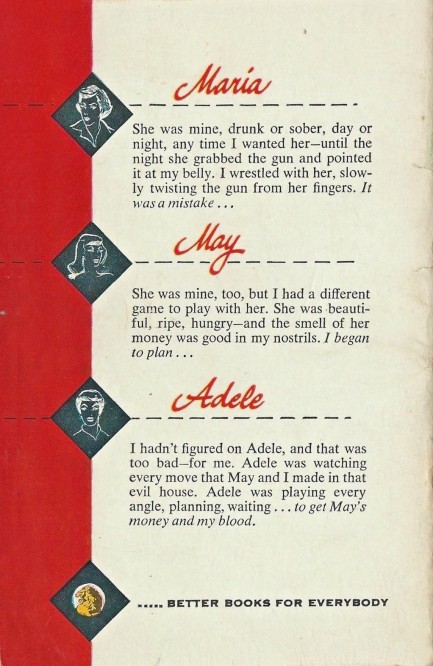| Vintage Pulp | Feb 4 2022 |

Excuse me, fellas, gotta go. Fleeting joy, followed by stinging disappointment and eventual doom are beckoning.

When you write more than fifty novels it helps to be highly imaginative, and Day Keene puts his brain through its paces in 1954's Joy House, a bizarre tale about a flashy mob lawyer named Mark Harris who flees his West Coast employers, wakes up in a Chicago mission after a five-week drinking binge, and is scooped up by a beautiful do-gooder widow who lives in a boarded up mansion. The widow became a recluse years earlier when her husband was murdered, and now all she does is take food to the mission three times a week, but when Harris moves into her house he awakens her dormant love glands and the two start really heating up the old pile of bricks.
As long as Harris keeps a low profile his pursuers won't have success, but he and the widow become increasingly public—something Harris can't avoid because he hasn't been truthful about hiding from mobsters who want to kill him. Luckily for him, she wants to start life anew, and suggests moving to Rio de Janeiro. Excellent idea, but there's more going on than Harris knows. As imaginative as this story is, it could have been better written—a hazard when you publish seven other novels in the same year—but overall we liked it. We like the uncredited cover too. We'll have more from Keene later. After all, with fifty-plus novels to his credit, he's almost unavoidable.






































































